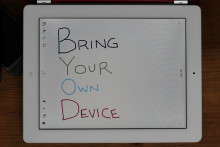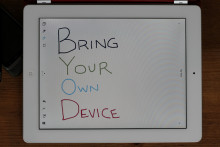BYOD is fine - but only on a dedicated network, says WWF CIO
It's not possible for an organisation to be aware of and secure every mobile device on the network, not matter how much the IT department tries, because staff will always connect their own smartphones and tablets to the office wireless connection.
That's according to WWF head of IT Dave Southern, who has recently overseen the development of a new wireless and cloud-based IT infrastructure as part of the animal welfare charity's move to its new headquarters, the Living Planet Centre in Woking, Surrey.











































































